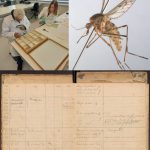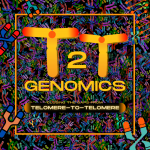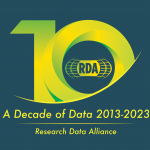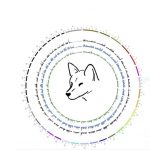Latest posts
Converting the Field Records of Early-20th Century Public Health Pioneer to Data
Scott Edmunds - July 18, 2023

Field notes of the early-20th century entomologist Johanna Bonne-Wepster have been digitized as part of the GigaByte vectors of human disease series
Selective sequencing on a shoestring: the $300 HARU system
Hans Zauner - July 4, 2023

This week GigaScience published a cost-effective, open source hardware/software solution for selective sequencing, using the Nanopore Minion device and a tiny $300 device that is “two times faster than a 30,000 $ 36-core server, at a fraction of power consumption”.
Amazonian Morpho butterflies: three genomes with a twist
Hans Zauner - May 25, 2023

First full-length genome sequences for three species of Morpho butterflies show inversions on the Z chromosome.
Announcing the GigaScience T2T Series: Closing the Gaps from Telomere-to-Telomere
Scott Edmunds - April 3, 2023

An announcement on the GigaScience T2T (Telomere to Telomere) Series: Closing the Gaps from Telomere-to-Telomere
RDA20 Plenary: A Decade of Data 2013-2023. Celebrating 10 years of the Research Data Alliance (RDA)
Chris Hunter - March 30, 2023

In one of our conference write-ups, GigaDB provides perspectives and summary of the RDA20 plenary- A decade of data. 5 days of discussions and working groups all about research data.
Multi-dimensional data for Cooinda the dingo

A new GigaScience article presents rich multi-dimensional data on a female dingo, Cooinda, including a whole genome sequence.
Addressing the challenges of sharing computational workflows with Yevis. Q&A with Tazro Ohta.
Scott Edmunds - March 6, 2023

We have an author Q&A and video abstract with Tazro Ohta where he gives some insight into archiving workflows and his new Yevis platform.
GigaByte now indexed in PubMed and PubMed Central (PMC)
Scott Edmunds - February 28, 2023

GigaScience Press is pleased to announce GigaByte journal is now indexed in the NLM PubMed and PubMed Central (PMC) databases.
Plant and Animal Genomes (PAG) Comes Storming Back!
Chris Hunter - February 6, 2023

After 2 cancellations due to the pandemic, the Plant and Animal Genomes conference returned to its in-person format in January with its 30th edition. A number of the talks focused on the effects of climate change either on biodiversity or crop development. It seems only fitting then, that the weather provided a suitable demonstration with […]
Cell Biology in Washington DC: GigaScience at ASCB/EMBO Cell Bio 2022
Chris Armit - January 29, 2023

Write-up of the American Society for Cell Biology (ASCB) and European Molecular Biology Organization (EMBO) 2022 Meeting